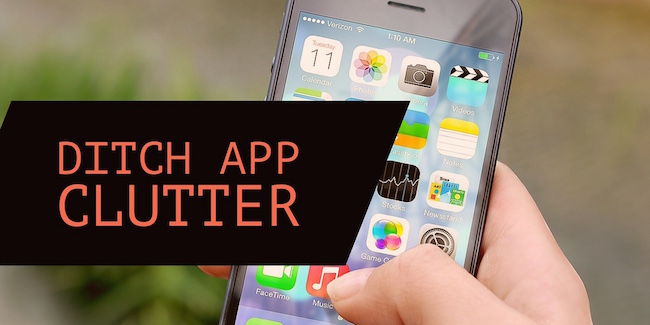If your phone is overloaded with an abundance of apps, it might be time to get rid of them. According to a recent report by comScore, most smartphone users in the U.S. use just 3 apps regularly.
1. Ditch apps that no longer serve you
While it’s cool to have every social media app at your fingertips, do you really need all of them on your phone? While Facebook, Youtube and Facebook Messenger might be keepers, declutter your screen and make room for apps that can put you on a more profitable path.
I buy digital gift cards on a regular basis so I downloaded the Raise App. As soon as I shop at a store and finish off one gift card, I start looking for the next one. I do this to spend less on what I normally buy and pace my spending as I go.
Honestly, I don’t spend on anything that I might need too far down the road unless I’m planning a project and have the extra cash to spare in the moment. I don’t do this too often because I don’t want money to just languish in my digital wallet for a long time.
For example, I accidentally bought multiple gift cards for Home Depot, forgetting that I already purchased one back in the summer. While I can always use it, I didn’t need to go there any time soon. That’s where attempts to spend wisely can backfire. I didn’t need that money to come out of this month’s current budget, but sometimes that happens.
In an effort to stay organized and maximize the savings, I guard against buying ones that aren’t a top priority in the current month. It’s tempting to get caught up in the moment as a savvy deal hunter. I wrestle with opportunity costs, sometimes being a deal-hunter can work against you if you spend a big chunk of the money you need for the month, just to get a deal.
2. Make a list of new apps to try
Do your research and download some new apps you’ve been meaning to try. While some apps are a flash in the pan, using apps like Level Money benefit you over time. Like many tracking apps, they “get to know you” by recognizing your spending patterns. It lets you know what money is available to spend after rent and other essential bills are covered. You can shop more confidently since it cues you in on what is “spendable” for discretionary expenses like a beer with your buddies, a spur of the moment mani/pedi or that second tattoo you’ve been wanting. You can say yes to these things without feeling guilty or second guessing yourself.
3. Download apps that serve others
Now that the the holiday season is over, frenzied shopping dies down a bit. Searching for gifts, attending holiday parties and celebrating in any way has come to a halt for many.
While purchasing presents for people was at the forefront of our minds at that time, giving to those who don’t have as much might have taken a backseat. I never seem to have spare change or a few dollars in my pocket when I see people collecting for the Salvation Army in front of a store. It’s common for me to feel so terrible when I leave.
I often scramble last minute every year to make a donation to a worthy cause slightly embarrassed that I almost missed doing so before the end of the year. If you forgot to forecast a donation into your budget, tacking on an extra 100 dollars or so might be hard.
Luckily, like many solutions in our modern world, there’s an app for that. This Coin Up app allows people to make small contributions by giving spare change digitally. Consumers spread out their giving without feeling like their budget got hijacked all at once.
You can give little by little throughout the year by using it. When you spend, the app rounds up the change from each transaction and donates it to a worthy cause. You can feel the spirit of the giving season year round without lifting a finger to help those in need.














